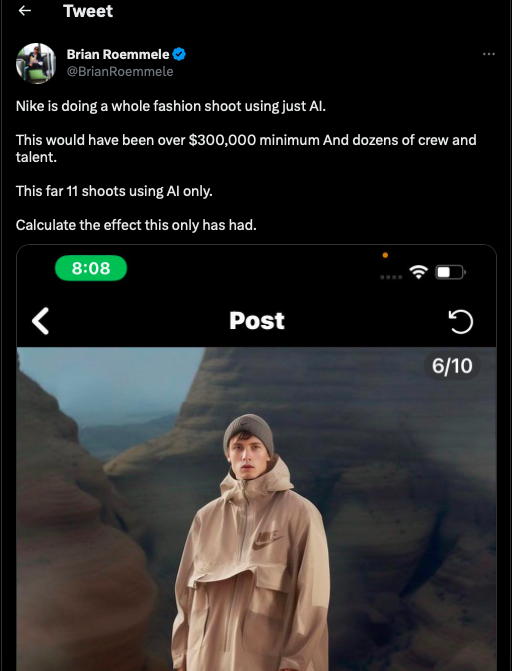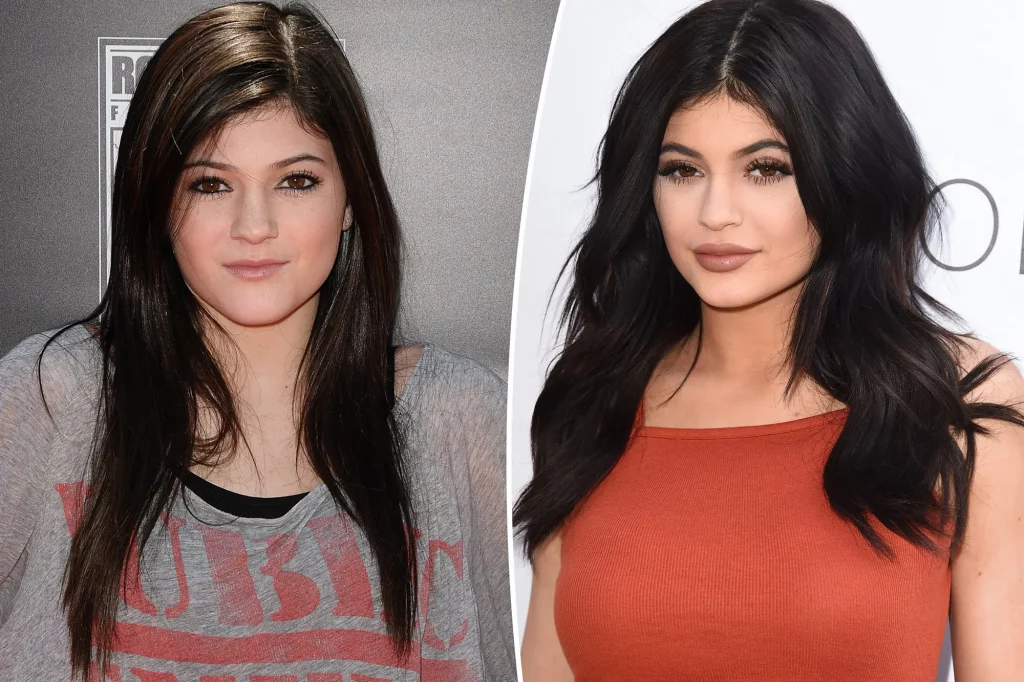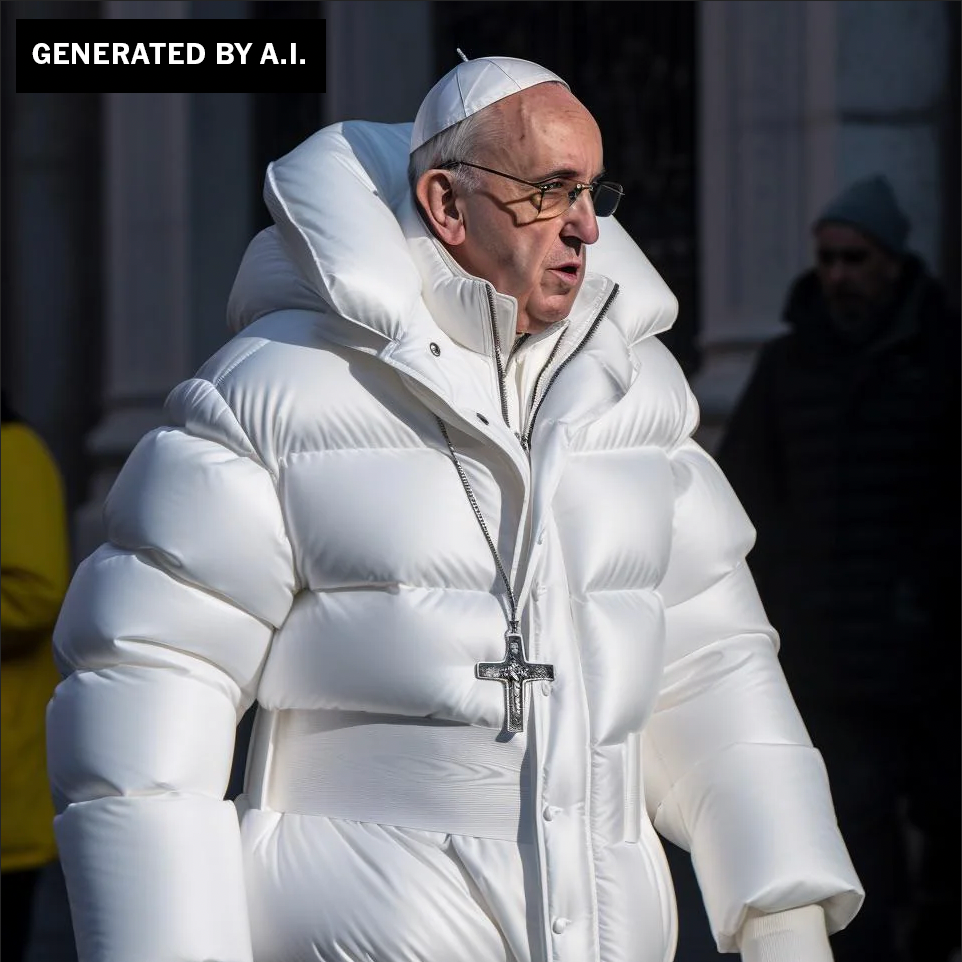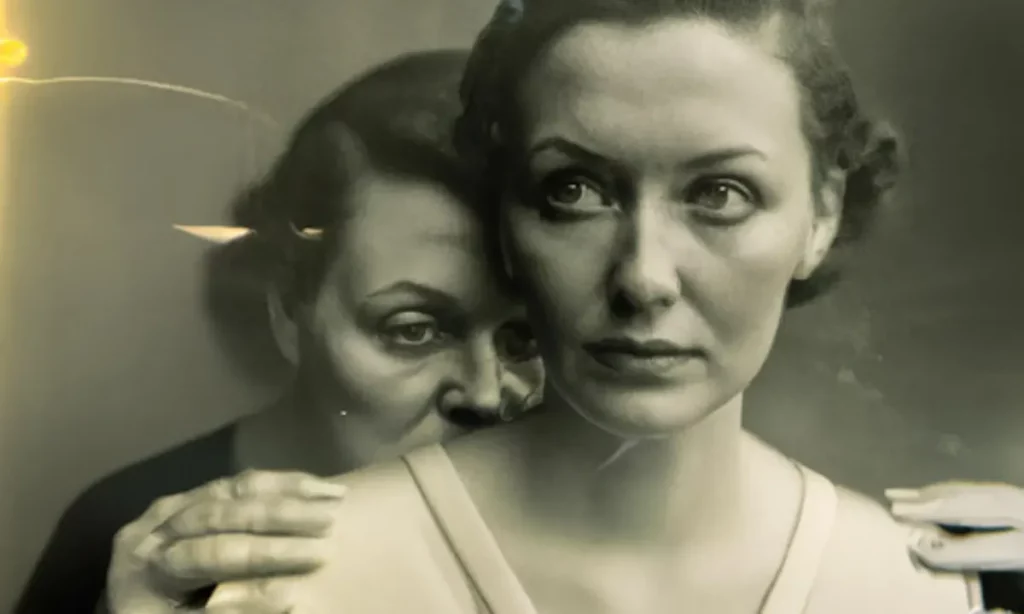How Do We Feel About Fake?
This morning I have been deluged by a series of articles about fake stuff. Some of it, like this Nike fashion shoot is based in AI:

While others are old favourites, like fake handbags, which have now reached a new level of apparent authenticity.
Then there’s plastic surgery. We all know about the Kylie Jenners of this world, who have clearly had a lot of ‘work’ done, while no one seems to mind. In the old days people seemed to want surgery that was somewhat unknown or invisible. No more.

In fact, we now live in a world where people are having plastic surgery that looks as if they have had plastic surgery. Here in LA I often see people with obvious ‘duck lips’ etc. It’s a thing!
We’ve also had the AI Drake/The Weeknd song, which spread across the planet before anyone even knew it was fake.
And that fake picture of the Pope in a white puffer jacket that fooled millions:


Are we about to enter a new era of humanity where ‘fake’ and ‘real’ become interchangeable? And, perhaps more importantly, how much do we care?
Returning to that Nike fashion show, if you weren’t told it was AI, would you enjoy it more? How much, if anything, does it lose through being ‘fake’?
That contest-winning photo is beautiful, but when you know it’s just a computer-generated image of nobody, does the story behind it simply disappear? Can we appreciate its aesthetics without the additional element that has enhanced every other photo taken before 2022: the fact that it was really capturing a moment of life?
Will we simply get used to all this and not mind?
Will it be like bodybuilding, where they have shows for the steroid-enhanced, and other shows for ‘clean’ bodybuilders? (It’s worth mentioning that the steroid shows are far more popular.)
I think we’ve always had an antipathy towards the ‘fake’ versions of things, but I feel as if that is now being eroded. Fakes used to be very much the exception; if they become the norm, our resistance to them will surely dissipate until we neither know nor care what is real and what is not.
The online world already allows us to buy digital real estate, dress our avatars in expensive digital clothing, and purchase NFTs, whose non-fakeness is so arbitrary that their values have plummeted by hundreds of millions of dollars. And that’s before we get into the reality or otherwise of crypto currencies.
Have we been slowly prepared to accept the fake, which now exists in its own reality? Will ‘real’ things become an expensive niche, enjoyed only by the rich and privileged?
Right now, nobody knows, but it seems to be heading in that direction, and I’m not sure how I feel about it.